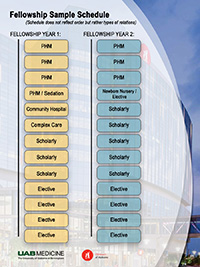
The UAB Pediatric Hospital Medicine (PHM) Fellowship Program offers a distinguished track record of cultivating exceptional specialists in caring for hospitalized children. Established in 2012, the program has a firm foundation in fostering future leaders within the field and was among the first institutions to receive ACGME accreditation. Emphasizing clinical excellence, scholarship, and leadership development, our fellowship seeks to train graduates to thrive in diverse settings, preparing them to deliver superior patient care while contributing meaningfully to the field through scholarship and education.
About Our Program
Our Mission:
The mission of the UAB Pediatric Hospital Medicine Fellowship is to prepare the future leaders in the field of Hospital Medicine as confident experts in the care of the hospitalized child. The Fellowship stresses excellence in Clinical care, Scholarship, and Education.
Program Aims:
Through the Fellowship, graduate fellows are expected to:
-
Develop the clinical and leadership skills to direct care of the hospitalized child comporting with best evidence-based medicine practices while coordinating with subspecialists, health providers, and community partners
-
Actively pursue new discovery and apply this knowledge in the form of novel research and/or quality improvement initiatives to their clinical practice
-
Educate patients, families, and the next generation of healthcare providers as active members of the academic community
Quick Facts:
-
Established in 2012, ACGME certified in 2020
-
2 year program (optional 3rd year for post-graduate training available)
-
2 fellow positions per year
-
Full scholarship support for all postgraduate training and Masters programs at UAB, and up to $10,000 support for extramural postgraduate training programs
-
Practice at Children’s of Alabama, the state’s only free-standing, quaternary care children’s hospital
-
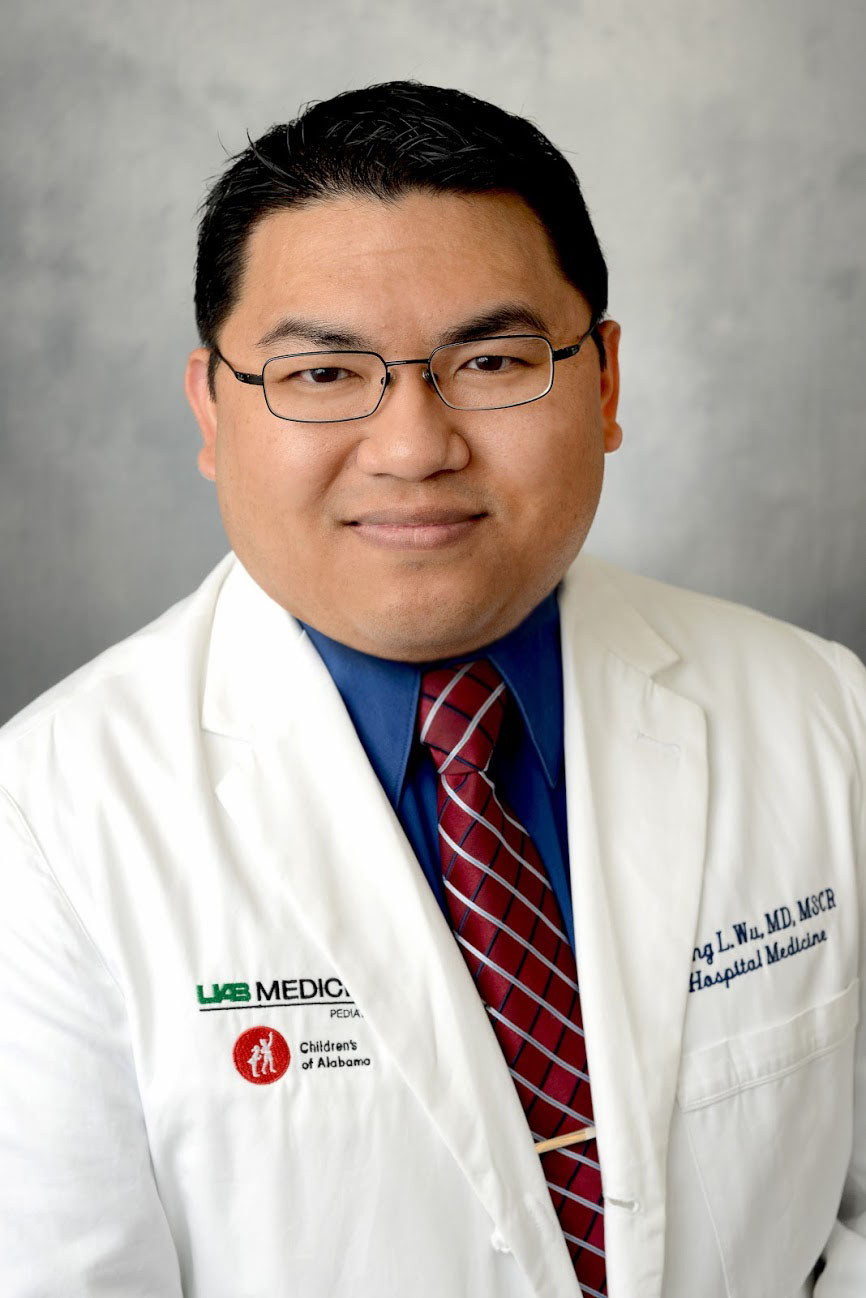
Welcome to the UAB Pediatric Hospital Fellowship Program!
On behalf of the entire UAB Department of Pediatrics and Children's of Alabama, I am thrilled to welcome you to our prestigious Pediatric Hospital Fellowship program. We are incredibly impressed with the caliber of applicants and excited about the prospect of you joining our vibrant fellowship community.
Our program is designed to cultivate the next generation of exceptional pediatric hospitalists. Here at UAB, you will gain unparalleled clinical experience in a dynamic setting. Children's of Alabama, the only free-standing pediatric hospital in the state, offers a vast array of patient cases, ensuring you'll be exposed to a comprehensive spectrum of pediatric illnesses and injuries.
Beyond clinical excellence, we prioritize fostering well-rounded physicians. Our curriculum emphasizes research opportunities, with dedicated mentorship and access to world-class research facilities. We also cultivate strong educational skills through our robust didactic program and fellow-led conferences.
Our most valuable asset, however, is our people. You will learn from a distinguished faculty of passionate pediatric hospitalists who are dedicated to your growth and success. Our supportive and collaborative environment fosters not only professional development but also lasting friendships with your fellow trainees.
As you embark on this next chapter in your career, we are confident that the UAB Pediatric Hospital Fellowship program will provide you with the knowledge, skills, and experience to excel as a future leader in pediatric care. We encourage you to explore our program website and feel free to reach out to us with any questions.
Welcome again, and we look forward to potentially welcoming you to UAB!
Sincerely,
Chang L. Wu, MD MSCR
Program Director, UAB Pediatric Hospital Medicine Fellowship
Associate Director, Division of Pediatric Hospital Medicine
Associate Professor of Pediatrics -
Division of Pediatric Hospital Medicine Faculty
Program Leadership
Program Director
Chang L. Wu, M.D., MSCRAssociate Program Director
Erinn O. Schmit, M.D., M.Ed.Fellow Advocate
Adolfo Molina, M.D., MSHQSEducation Coordinator
Liares DupreeMentorship Programs
Unlock Your Potential with Comprehensive Mentorship
At the UAB Pediatric Hospital Medicine Fellowship, we know that great mentorship makes all the difference — not just for your training, but for your career. That’s why we offer a well-rounded, thoughtful mentorship structure that’s with you from day one and keeps supporting you long after fellowship ends.
Personalized Guidance: Dyadic Mentorship
Getting Started Strong: From the moment you arrive, our Transitional Mentorship Program pairs you with a dedicated mentor. They'll help you acclimate to Birmingham and the fellowship, but more importantly, they'll work with you to clarify your career vision and connect you with the ideal Primary Mentor to help you achieve it.
Tailored Expert Connections: Your Primary Mentor will often be a leader from our Division of Hospital Medicine, but we encourage you to think big. Whether your interests span clinical care, research, advocacy, or medical education, we’ll help you connect with experts across UAB — and even outside the institution — to create a mentoring team that matches your vision.Collaborative Support: Group & Peer Mentorship
Development: Our Fellow Advocate provides regular group mentorship and well-being guidance, ensuring your comprehensive development and personal well-being throughout your fellowship.
Shared Growth & Innovation: We actively cultivate an environment of peer mentorship. Fellows often discover shared academic passions or explore new avenues of scholarship they hadn't considered before, fostering a dynamic and collaborative learning experience.Cultivating Future Educators: Pre-Graduate Mentorship
Shape the Next Generation: If you're passionate about medical education, our Pre-Graduate Mentorship opportunities are for you. Fellows have the opportunity to apply to be a part of the Learning Communities Mentorship Program at UAB, where they mentor cohorts of medical students through their foundational years of training. This is an unparalleled opportunity to develop your teaching and leadership skills.
Ready to explore a fellowship program that prioritizes your mentorship and career growth?
-
Commitment to Individualized Training
We recognize that every fellow has their own path. That’s why we offer a flexible, individualized curriculum that helps you build both core clinical skills and deeper expertise in your areas of interest. You’ll work closely with mentors to tailor your rotations and experiences, and you’ll care for a diverse population of medically complex children at Children’s of Alabama, one of the top pediatric hospitals in the country
Sample Schedule
Elevate Your Academic Impact: UAB PHM Fellowship
Our fellowship provides a robust academic foundation designed to launch your career as a leader in pediatric hospital medicine. You'll engage in meaningful scholarship, sharpen your teaching skills, and develop expertise in healthcare quality and research methodology.
Here's a snapshot of your academic journey:
-
Tailored Scholarly Projects: Every fellow completes a mentored research project in quality improvement, clinical care, medical education, or advocacy, contributing to the broader field of pediatric hospital medicine. You'll also have the unique opportunity to develop a disease-specific clinical pathway for Children's of Alabama.
-
Comprehensive Clinical Education:
-
Core Lectures: Weekly sessions on hospital medicine competencies.
-
Journal Club: Monthly discussions of cutting-edge literature.
-
Interdisciplinary Learning: Shared series with Pediatric EM and Critical Care fellows on common clinical topics, plus a monthly series on career development for all pediatric fellows.
-
Case-Based Learning: Weekly clinical case conferences and quarterly fellow-led Root Cause Analysis sessions.
-
-
Dynamic Teaching Education:
-
Module Development: Create educational modules for housestaff (e.g., breastfeeding, global health, physical exam skills).
-
Curriculum Design: Lead educational sessions for residents and medical students, including MS1 Learning Communities.
-
Simulation Training: Utilize UAB's state-of-the-art simulation lab for education and research.
-
Pedagogy Workshops: Enhance your teaching skills through workshops on feedback and adult learning.
-
-
Foundational Scholarly Training:
-
Methodology & QI: Gain expertise in biostatistics, analytic methods, and practical quality improvement.
-
Communication Skills: Workshops on academic presentations and manuscript preparation.
-
Grant Writing: Introduction to securing research funding.
-
Mentored Abstract Review: Hands-on experience in peer review.
-
-
Impactful Applied Research:
-
Publishable Scholarship: All fellows complete a primary scholarly project worthy of publication.
-
National Presentations: Present your scholarly work at major national conferences (e.g., PAS, PHM, AAP, APPD).
-
Clinical Pathway Development: Lead the creation of a clinical pathway or quality improvement initiative.
-
-
Why UAB?
Choosing the UAB Pediatric Hospital Medicine Fellowship Program offers an unparalleled opportunity to train at the forefront of pediatric care within a highly respected academic medical center. Located in Birmingham, Alabama, a vibrant and growing city, you'll benefit from the collaborative environment of UAB and gain extensive experience at Children's of Alabama, a nationally recognized leader in pediatric healthcare.
What Makes Us Stand Out:
-
National Recognition:
-
U.S. News & World Report: UAB Hospital is consistently ranked as the Best Hospital in Alabama and is nationally recognized in multiple adult specialties. Children's of Alabama is likewise consistently ranked among the nation's Best Children's Hospitals, with numerous pediatric specialties earning top 50 distinctions.
-
Newsweek: UAB Hospital has been recognized on Newsweek's World's Best Hospitals list, and Children's of Alabama was named one of America's Greatest Workplaces for Women 2025 by Newsweek.
-
Forbes: UAB was named America's No. 1 Best Large Employer by Forbes in 2021.
-
Magnet® Recognition: UAB Hospital has earned the prestigious Magnet® designation for nursing excellence six consecutive times, a rare achievement held by only a handful of hospitals worldwide, signifying the highest standards in patient care and nursing quality.
-
-
Exceptional Clinical Volume and Breadth: As the only free-standing pediatric hospital and a major referral center in Alabama, Children's of Alabama provides a vast and diverse patient population. This translates to extensive clinical experience across a wide range of pediatric conditions, preparing you for any practice setting.
-
Robust Academic and Research Hub: UAB is a leading academic medical center with a strong commitment to pioneering research, innovative education, and continuous quality improvement. You'll have access to world-class faculty, cutting-edge research opportunities, and comprehensive training in quality improvement and patient safety.
-
Supportive and Collaborative Training Environment: Our program fosters a truly collaborative and supportive culture. Through our dyadic, group, and peer mentorship programs, you'll receive personalized guidance, holistic development, and a strong professional network throughout your fellowship. Additionally, pre-graduate mentorship opportunities allow you to refine your teaching skills and shape the next generation of medical professionals.
Explore a fellowship that’s built around your growth, your interests, and your future. We’d love to welcome you to UAB!
Our Team
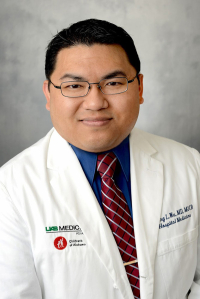
Chang L. Wu, M.D., MSCR
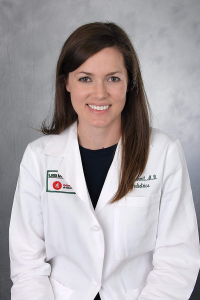
Erinn O. Schmit, M.D., M.Ed.
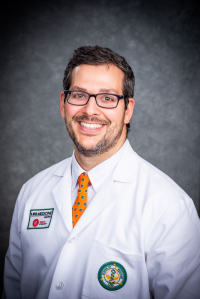
Adolfo Molina, M.D., MSHQS

